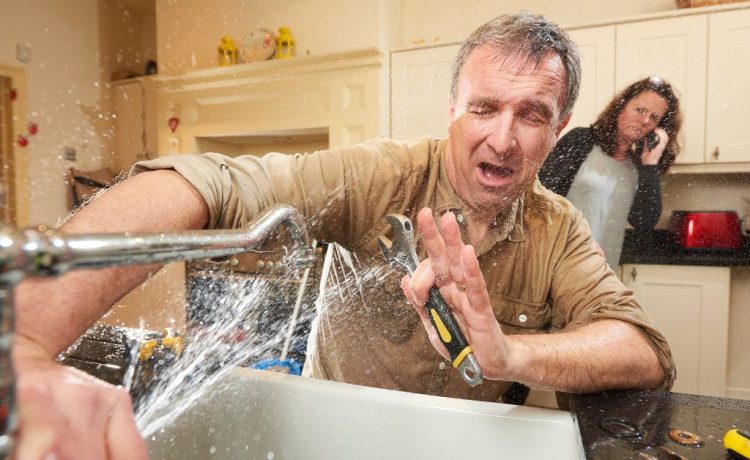Plumbing emergencies tend to happen when we least expect them—often late at night, during the holidays, or just as guests are about to arrive. Whether it’s a burst pipe or a blocked toilet, quick thinking can minimise damage and stress. While you should always call a professional like Plumbform for urgent repairs, there are a few things you can do to manage the situation until help arrives. Here are the top five plumbing emergencies homeowners face—and what to do in the critical moments before the plumber gets there.
Burst Pipes
What’s happening: A pipe has cracked or broken, usually due to freezing temperatures, corrosion, or physical damage, and water is pouring into your home.
What to do:
- Shut off your main water supply immediately to stop the flow.
- Open taps to drain the remaining water in the pipes.
- Move nearby furniture or belongings out of harm’s way.
- Use buckets or towels to control water where possible.
Pro tip: Knowing where your water shut-off valve is located before an emergency occurs can save precious time.
Blocked Toilet
What’s happening: Water is rising dangerously high in the bowl, often accompanied by unpleasant odours and the risk of overflow.
What to do:
- Don’t flush again—it’ll only make things worse.
- Try a plunger to dislodge the blockage. If that fails, a toilet auger may help.
- If water is already spilling out, shut off the water valve behind the toilet.
In most cases, blocked toilets need professional attention, especially if it’s part of a recurring issue. That’s when it’s time to call professionals for fast, reliable assistance.
Leaking Hot Water System
What’s happening: You’ve noticed water pooling around your hot water unit, or perhaps you’ve lost hot water entirely.
What to do:
- Turn off the power supply (gas or electric) to the hot water system.
- Shut off the cold water inlet valve leading to the tank.
- Avoid using hot taps until a plumber inspects the unit.
Leaks in hot water systems can be dangerous if left unattended, so it’s best not to delay.
Gas Leaks
What’s happening: You smell gas inside or near your home—often described as a sulphur or rotten egg scent.
What to do:
- Do not ignite any flames or operate electrical appliances.
- Open windows and doors to ventilate the area.
- Turn off the gas supply at the meter.
- Evacuate the premises and call a licensed plumber immediately.
This is a critical emergency where speed and safety are paramount. Only certified professionals should handle gas-related issues.
Sewage Backups
What’s happening: Wastewater is coming back up through toilets, floor drains, or sinks—usually with a foul smell and visible contamination.
What to do:
- Avoid using any plumbing fixtures in the house until the issue is resolved.
- Keep children and pets away from affected areas.
- Open windows for ventilation, but do not attempt to clear the blockage yourself.
Sewage backups can pose serious health hazards and require urgent attention from a licensed plumber.
While it’s tempting to try and DIY a plumbing fix, most emergencies are best left to trained professionals
Acting quickly, staying calm, and knowing who to call can prevent small issues from becoming major disasters. Whether you’re facing a flooded laundry, a faulty hot water system, or a blocked drain, having expert plumbers on call for any plumbing emergencies is essential for peace of mind.






